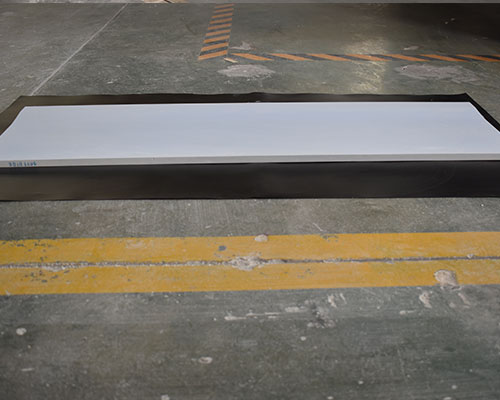A caster tip for twin roll continuous strip caster that is used for casting non-ferrous metals aluminium.
In a typical twin roll caster a liquid metal, for example aluminium, is fed from an elongate casting tip into the nip between two counter-rotating water cooled rollers. The liquid metal is cooled on contact with the rollers and freezes as it passes between the rollers to form a wide cast metal strip of uniform thickness. The casting process can operate continuously for as long as liquid metal is supplied to the caster.
Caster tips are typically made of a low density ceramic material that is able to withstand abrasion and thermal shock associated with liquid aluminium contact, for example a ceramic fibre board formed to the necessary shape. Because these materials are low in density they have a low thermal conductivity (typically less than 0.18 W/mK) and offer some degree of thermal insulation to the liquid Aluminium inside the caster tip. However, they can become chemically attacked and abraded after a period of production time. This can lead to the formation of various impurities within the tip structure ultimately leading to a premature stop of the casting campaign.
The thermal profile of the liquid metal exiting the caster tip ideally needs to be as uniform as possible along the caster tip length. The width of a caster tip can be anywhere from 0.3 m up to 2.5 m. Often the liquid metal exiting the caster tip is at its hottest in the central region and at the two outer ends of the tip as these are heavily insulated. The cooler regions are generally located to the left and right of the central region, between the central region and the end regions of the caster tip. These temperature differences can affect the uniformity of the casting process and the quality of the cast metal strip.

